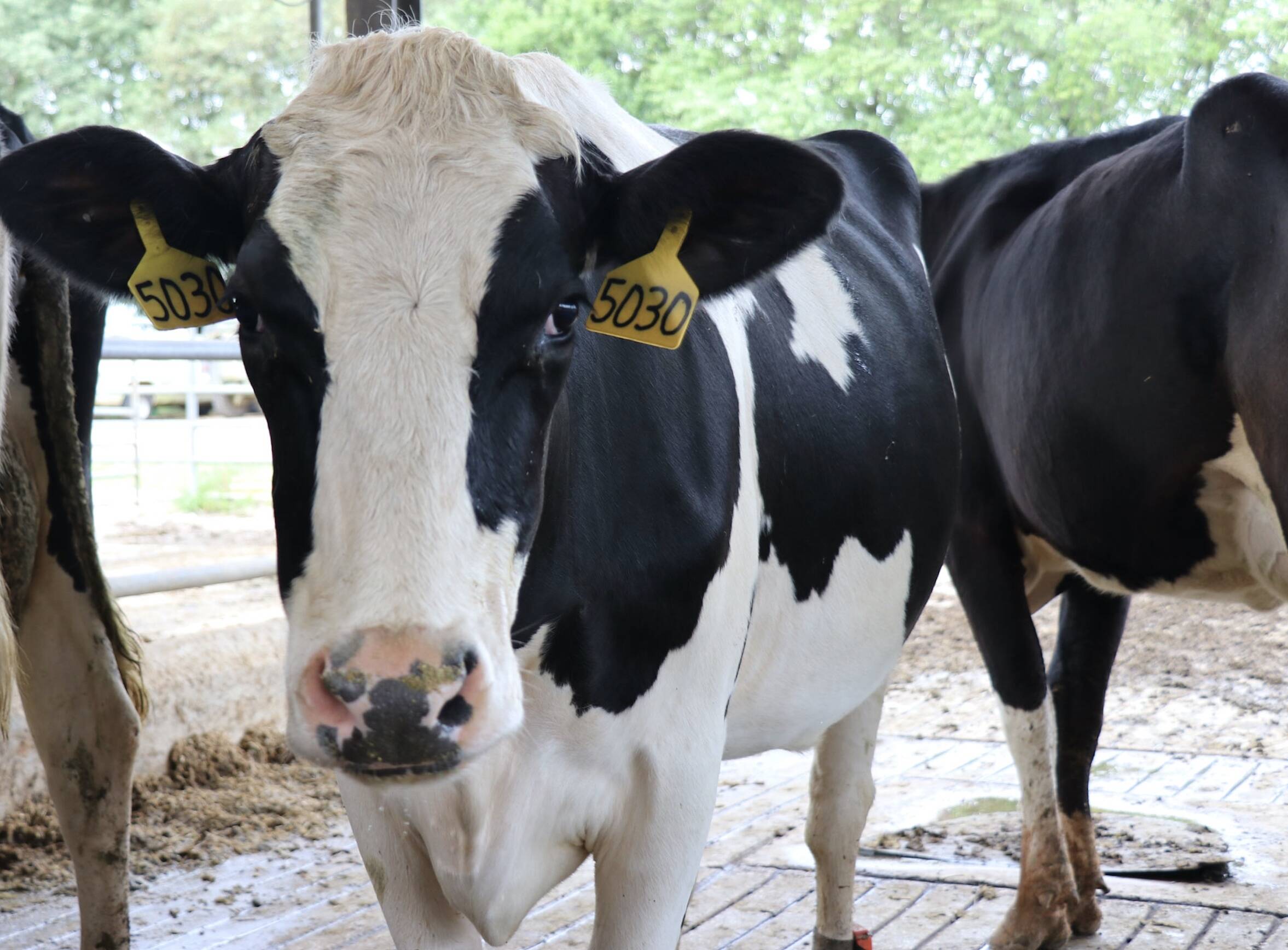LSU-Developed Vaccine Could Save U.S. Cattle Industry $1 Billion Annually
March 18, 2024
Bovine respiratory disease and related viruses kill 8 million calves each year
An LSU researcher has developed a new vaccine against bovine respiratory disease (BRD) and related illnesses that kill around 8 million calves each year and cost the U.S. cattle industry more than $1 billion.

Most cattle producers now use a commercially available modified live BRD vaccine containing several live viruses (a cocktail) to protect their herds. Still, the diseases kill more than one out of every five calves.
“Our vaccine is safer for calves and far more effective than the vaccine cocktail,” said Dr. Shafiqul Chowdhury, a professor of veterinary medicine.
Chowdhury took bovine herpes virus type 1 (BHV-1) and genetically modified it to provide the protective proteins of other bovine respiratory viruses -- bovine viral diarrhea virus type 1 & 2 (BVDV 1more & 2), and bovine respiratory syncytial virus (BRSV) -- to prevent bovine respiratory disease.
LSU Vice President of Research & Economic Development Robert Twilley said research that leads to new tools like Dr. Chowdhury’s vaccine is one of the pillars of LSU’s Scholarship First Agenda, which advances agriculture, biomedicine, coastal protection, defense and energy.
“Global population growth and environmental changes mean we must increase the amount of food we produce,” Twilley said. “This LSU-developed vaccine will help protect the world’s food supply and improve outcomes for cattle producers in Louisiana and nationwide.”
Chowdhury said the calf mortality rate in vaccinated animals is just one area where the current vaccine cocktail falls short.
The United States does not require marker or DIVA (Differentiating Infected from Vaccinated Animals) vaccines, which can be distinguished from the virulent field viruses. The current vaccine cocktail is not a DIVA/marker vaccine. Vaccine viruses can therefore circulate and be maintained in the cattle population. They may change over time and regain the ability to cause disease.
Cattle producers have also reported spontaneous abortions and bovine respiratory disease in vaccinated animals. Variants of the live vaccine viruses are thought to be the cause. The lack of markers in the vaccine cocktail makes it impossible to distinguish the vaccine viruses from the disease-causing viruses.

LSU Professor of Veterinary Medicine Shafiqul Chowdhury
With Chowdhury’s vaccine, there is no chance for the vaccine virus to spread and circulate in the cattle population, he said.
Chowdhury’s vaccine offers other advantages:
- It’s cost-effective. It uses one virus, genetically engineered BHV-1, which grows well in cell culture. In the commercial cocktail vaccine, individual viruses are grown separately and then mixed. Each vaccine batch requires extensive quality control. BRSV, the virus, grows poorly in cell culture with a meager yield.
- It does not cause abortion, a potential outcome among cows that reach adulthood after being given the commercial vaccine cocktail.
Chowdhury has applied for a patent for the vaccine, with the help of the Office of Innovation & Technology Commercialization, part of the LSU Office of Innovation & Ecosystem Development. Chowdhury has already been awarded several U.S. and international patents. He has several additional patents pending.
“Dr. Chowdhury’s vaccines could be a game-changer for the cattle industry, and we couldn’t be more excited to support this kind of groundbreaking research,” Twilley said.
About LSU’s Office of Innovation & Technology Commercialization
LSU’s Office of Innovation & Technology Commercialization (ITC) protects and commercializes LSU’s intellectual property. The office focuses on transferring early-stage inventions and works into the marketplace for the greater benefit of society. ITC also handles federal invention reporting, which allows LSU to receive hundreds of millions of dollars each year in federally funded research, and processes confidentiality agreements, material transfer agreements, and other agreements related to intellectual property.
About LSU Innovation & Ecosystem Development
LSU Innovation unites the university’s innovation and commercialization resources under one office, maximizing LSU's impact on the intellectual, economic, and social development of Louisiana and beyond. LSU Innovation is focused on establishing, developing, and growing technology-based startup companies. LSU Innovation oversees LSU Innovation Park, a 200-acre business incubator that fosters early-stage tech companies, and the Office of Innovation & Technology Commercialization, which streamlines the process of evaluating, protecting, and licensing intellectual property created by LSU researchers. LSU Innovation serves as the host organization for the Louisiana Small Business Development Center (SBDC) Network which oversees all SBDC services across the state as well as the LSU SBDC, which provides free consulting services to small businesses across the state. LSU Innovation helps Louisiana technology companies apply for seed funding through the federal Small Business Innovation Research and Small Business Technology Transfer grant programs. LSU Innovation educates faculty, students, and the community on entrepreneurial principles through the National Science Foundation’s Innovation Corps (I-Corps) program which trains innovators to consider the market opportunities for pressing scientific questions, leading to increased funding state and federal grant programs as well as potential industry partners and licensees.


